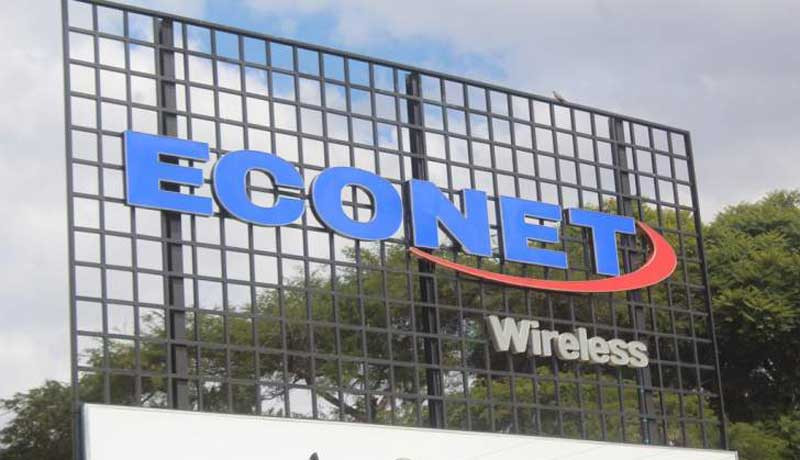
SOME areas in Zimbabwe are experiencing load-shedding for more than 18 hours, a power crisis that has ripped through businesses across the country.
Telecom operators are not spared, with some key players in the sector long investing in renewable energy, aiming for a respite amid the ongoing electricity outages.
One of these firms is Econet Wireless, a leading mobile operator owned by telecom giant Strive Masiyiwa. Shortages of foreign currency in Zimbabwe, however, is hampering plans to increase solar-powered base stations.
“By the end of our 2022 financial year, we had installed over 200 solar-powered base stations across our network in line with our organisational strategy underpinned by our sustainable ESG [environmental, social, and corporate governance] practices,” says Fungai Mandiveyi, the company spokesperson.
“Although our plans have been negatively impacted by the shortage of foreign currency, we are hopeful that in the next two years, we will have tripled the number of solar sites across our network,” he tells The Africa Report.
Extra costs
Mandiveyi says power cuts undoubtedly result in extra operating costs.
“These include, among others, the additional cost of purchasing diesel fuel to power backup generators across thousands of our base station sites scattered around the country, the additional transportation cost of delivering the fuel to these sites, the additional cost of maintenance, and replacement of the generators, as well as security costs,” he says.
- Chamisa under fire over US$120K donation
- Mavhunga puts DeMbare into Chibuku quarterfinals
- Pension funds bet on Cabora Bassa oilfields
- Councils defy govt fire tender directive
Keep Reading
With the shortage of power, we have also seen a spike in theft and the rampant vandalism of power accessories
Mandiveyi says power cuts also result in damage to equipment, which adds more maintenance costs.
“With the shortage of power, we have also seen a spike in theft and the rampant vandalism of power accessories such as batteries, diesel and transmission fuel, adding more costs to network operators,” he says.
Zimbabwe’s second-largest telecom operator, Netone, is currently rolling out 100 solar solutions mainly targeting their sites, which run continuously on generators. Each of these sites currently requires more than 1,000 litres of fuel per month to generate power through generators.
Diesel prices shot up last year following Russia’s invasion of Ukraine, which has abysmally affected economies around the world.
To date, fuel prices have not declined to pre-war levels.
Netone has only 155 base stations that are on continuous generator power.
The Africa Report understands that Netone needs 450,000 litres of fuel per month to run their stations, an amount that pushes the company’s cost curve high, thereby increasing the cost of doing business.
The state-run company also incurs other significant costs in deploying and distributing the fuel to different base stations dotted around the country.
Deteriorating services
Netone has a total of 1,076 stations around the country and 792 generators for backup power have been deployed to cater for power outages. There is a significant number of their base stations that run without any backup and would be down during load-shedding.
With prolonged load-shedding hours, Netone’s subscribers in areas where base stations run without backup are left with no coverage for any communication.
For his part, Mandiveyi says power cuts disrupt Econet Wireless’ mobile network operations because, virtually, all their network transmission infrastructure requires power for uninterrupted service delivery through voice, data and Short Message Service (SMS).
“We, however, continue to do everything we can to ensure minimal disruption of service from the downtime caused by power cuts on our customers by using backup power such as diesel generators and other renewable energy sources such as solar and backup batteries,” he says.
At the customer experience level, power cuts have resulted in poor brand percepetion due to service quality issues beyond our control
“At the customer experience level, power cuts have resulted in poor brand perception due to service quality issues beyond our control.”
To mitigate the challenges caused by power cuts and the energy crisis in the country, Mandiveyi says Econet Wireless continues to invest in alternative power sources, such as long-life lithium batteries, over and above the backup generators deployed at key sites across the country.
“We have also been investing in acquiring additional refuelling trucks, adding to our [operating expense] OPEX and maintenance costs,” Mandiveyi says.
Prolonged power crisis
Zimbabwe is facing a power crisis mostly due to ageing equipment at its main power plant Kariba Hydro and Hwange Thermal Power station.
The power crisis in the Southern African nation took a turn for the worse late last year.
The Zimbabwe River Authority, mandated with managing water in Kariba Dam and its reservoirs, ordered the state-owned Zimbabwe Power Company (ZPC) and Zambia’s Kariba Hydro Power Company Limited (KHPC) to stop electricity generation at the dam due to low water levels.
Water levels at Kariba Dam, which is shared between the two nations, have gone down significantly because of the effects of climate change across southern Africa in the past years.
Although water levels have started to rise at Kariba Dam, it seems that it will take ZPC sometime before it can generate more than half of its installed capacity of 1,050 megawatts (MW).
Kariba Hydro Power plant produces more than 70% of Zimbabwe’s electricity. According to the Zimbabwe Electricity Distribution Company (ZETDC), the country needs an average power demand of about 1,735 MW.
Both South Africa and Zambia have been suffering daily hours-long electricity outages.
As of 18 November 2022, Zimbabwe’s available total electricity was at 702 MW, with the Kariba power plant generating 243 MW, Hwange thermal power plant 444 MW, and the Munyati power station 15 MW, according to ZPC data.
To fill the power deficit, Zimbabwe needs to import between 200 MW and 450 MW from its neighbours, including South Africa’s Eskom, Mozambique’s Hidroeléctrica de Cahora Bassa (HCB), and Zambia Electricity Supply Corporation Limited, according to government officials.
Both South Africa and Zambia have been suffering daily hours-long electricity outages.






